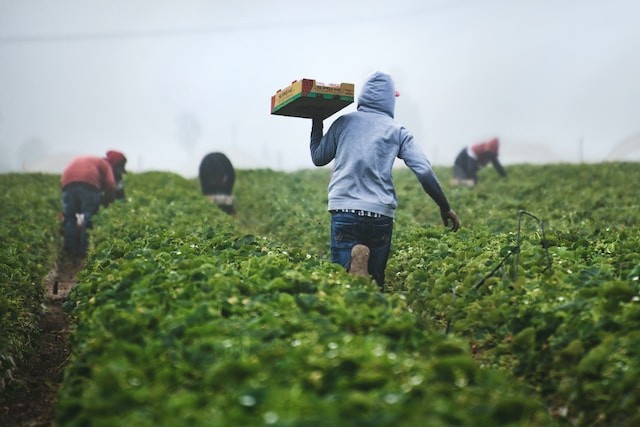Agriculture is a leading employer in Africa, but it also faces many challenges, such as low productivity, climate change, and environmental degradation.
Technology can help boost farming in Africa, but it can also threaten biodiversity, which is essential for food security and ecosystem services.
A new study published in Current Opinion in Biotechnology explores this question by examining the linkages between agricultural labor dynamics and biodiversity loss.
Trade-offs between labor-saving technologies and biodiversity

The study, led by researchers from different disciplines and institutions, argues that efforts to promote biodiversity-friendly agriculture often neglect the trade-offs with farm labor needs, as per Phys.org.
Farming in Africa is labor-intensive and time-consuming, especially for women and children. Farmers can reduce heavy labor by adopting technologies, such as mechanization and herbicides, which can improve their livelihoods and well-being.
The expansion, simplification, deterioration, and spillover impacts of these technologies, however, can potentially have a negative impact on biodiversity.
The study demonstrated that there are complex and context-specific trade-offs between labor-saving technology and biodiversity, depending on elements including farm size, crop variety, market access, and institutional setups.
As a result, there is no universal method for balancing the two goals.
Types and Impacts of labor-saving Technologies on African Farms
The study reviews different types of labor-saving technologies that are widely used or adopted by African farmers, such as tractors, animal traction, herbicides, improved seeds, and irrigation, as per Africa Renewal.
It analyzes their impacts on biodiversity using various indicators, such as land use change, landscape heterogeneity, soil quality, and species richness.
According to the study, some technologies, like better seeds that boost yields without using up more farmland or irrigation that improves soil moisture and fertility, have a positive effect on biodiversity.
Some technologies have negative impacts on biodiversity, such as tractors that remove trees and hedges from farms or herbicides that reduce plant diversity and affect pollinators.
This also highlights some examples of harmful microorganisms that have been dispersed globally by atmospheric currents, such as fungi that cause wheat rust or coffee leaf rust, bacteria that cause anthrax or plague, or viruses that cause influenza or COVID-19.
These microbes can pose serious threats to human health, agriculture and biodiversity.
The role of Digitalization and trade in boosting farming in Africa
The study suggests that digitalization and trade can be game changers for boosting farming in Africa.
Digitalization can help farmers access information, markets, finance, extension services and innovation, as per The Conversation.
Trade can help farmers access larger and more diverse markets, increase their incomes and reduce their vulnerability to shocks.
Digitalization and trade, however, can also endanger biodiversity when they are not properly controlled. The increased demand for energy, water, and land due to digitization may result in habitat loss and fragmentation.
Trade can increase the exposure to invasive species, pathogens or allergens, which can harm human health, agriculture and biodiversity.
Therefore, digitalization and trade need to be accompanied by policies and regulations that ensure their sustainability and inclusiveness.
For example, digital tools need to be affordable, accessible and user-friendly for smallholder farmers; trade agreements need to include environmental standards
© 2025 NatureWorldNews.com All rights reserved. Do not reproduce without permission.





